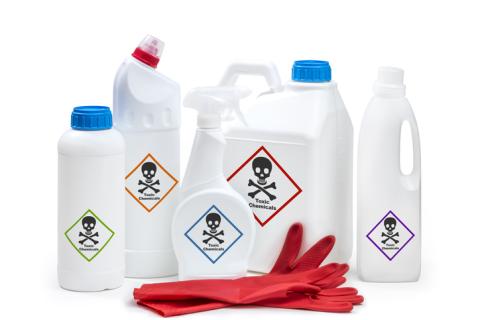Poison Control Reminders for the Pandemic
- Have a system to help remember when to take medications. This could be a pill box, bubble packages from the pharmacy, a medication checklist, a cell phone app or other timer. As always, take medications exactly as directed. Ask your doctor before making any changes to your medication regimen.
- If someone usually helps you read labels, but they are unavailable to assist at this time, ask the pharmacy if they offer large-print labels. If it’s still hard to tell pill bottles apart, mark them with colored tape, label them, or use stickers.
- If you are temporarily isolated from others, be more aware of possible side effects of medications. Family caregivers should check in regularly on older loved ones. If families are having video chats these days, take the opportunity to review the senior’s pill bottles and reminders. Telehealth appointments with the doctor also may be available.
- At this time, it can be more challenging for seniors to get to the pharmacy. Some pharmacies will deliver and some offer drive-through service. Some pharmacies and insurance companies also are allowing seniors and people with underlying conditions to stock up on prescription drugs so as to limit pharmacy trips. This is to encourage older adults to stay safely at home—but the downside is that there might be a dangerously large amount of a medication in the home.
Protecting children
At this time, many families are sheltering in multigenerational “bubbles.” Kids and grandparents alike are spending more time at home. Parents may be juggling telecommuting with childcare, leaving inquisitive little ones with more time to get their hands on medications. The Centers for Disease Control and Prevention (CDC) recently noted that poison centers receive 400,000 calls each year when young children ingest medications adults have left lying around. The most common prescription drugs involved were opioid pain medications as well as cardiac medications and diabetes medications. Even over-the-counter drugs, herbals and vitamins can be dangerous.
The CDC warns that while medications come in child-resistant packaging, grandparents might take the pills out of those packages for convenience and ease. Often, they’ve put the pills in pill organizers that are easy for kids to open. Or maybe a visiting grandparent arrived with a baggie of pills in their carry-on. Many seniors are in the habit of lining up loose pills on the countertop so they’ll remember to take them. And occasionally, they might drop pills on the floor without noticing.
The CDC recommends leaving medications in the original child-resistant packaging. If you do transfer pills to a different container, take these precautions to keep kids safe:
- Use a container that is child resistant.
- Securely re-close the container after every use.
- Put the container up and away and out of a child’s reach and sight immediately after every use.
- Keep purses, other bags, or pockets with medicines in them up and away from young children.
- If pills are spilled when taking or transferring medications, double-check to make sure that all pills are picked up.
Keep the Poison Help number in your phone – (800) 222-1222. Call right away if you think a child might have gotten into a medicine, even if you are not sure.
Untried remedies can be dangerous.
As the pandemic went on, unscrupulous companies manufactured and sold products that claimed to prevent or cure COVID-19. Most of these products are merely useless, but some have been found to be dangerous if ingested. Never take a medication without checking with your doctor first.
Cleaning supplies can be dangerous, as well
Experts also report an increase in accidental poisoning from cleaning and sanitizing products, as well. These include hand sanitizers, cleaning products with bleach, and other disinfectants. Today we’re using more of those products, but we’re not necessarily taking care to use them properly. Here are tips to keep us hygienic—and safe:
- Read the label and follow directions carefully.
- Don’t leave these products where children or people with dementia can find them.
- Don’t let kids use hand sanitizers without supervision.
- Avoid mixing products, such as those with bleach, ammonia and acids.
- Use cleaning products in a well-ventilated area.
- Wear skin and eye protection.
- Use “Mr. Yuk” stickers if there are kids or persons with dementia in the home.
